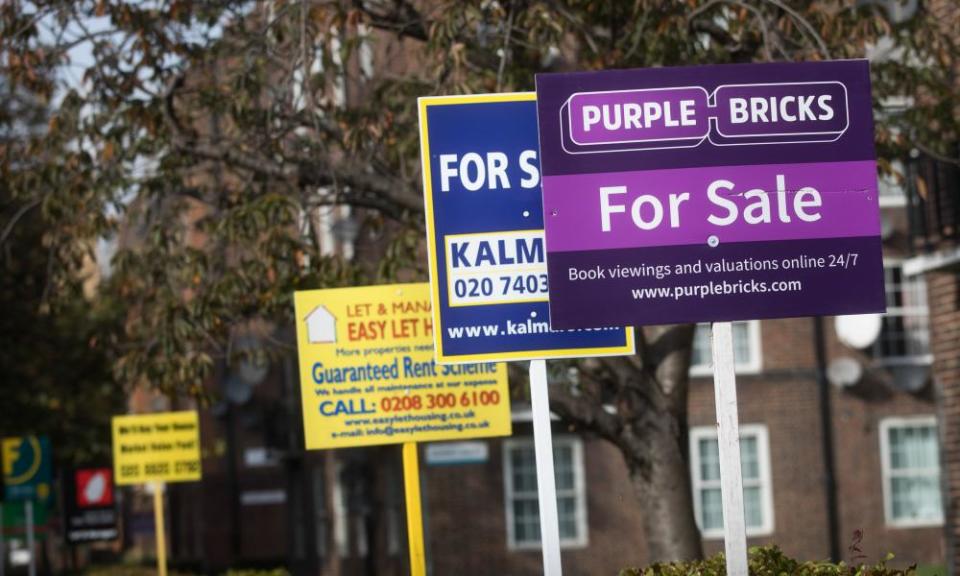Single first-time buyer in London needs 17 years to find 15% deposit – report

A typical single first-time buyer in London will have to save for 17 years – until 2035 – to raise enough cash for a 15% deposit on a home.
That is up from the 15 years recorded in both 2008 and 2013, despite steep house price falls in parts of London since the Brexit vote two years ago.
Across England and Wales, the average single first-time purchaser would need just over 10 years to save up a deposit of that size, according to a report from the estate agent Hamptons International.
Its figures provide fresh evidence that saving enough for a deposit is still the biggest barrier to getting on to the property ladder.
However, saving enough to put down an initial 5% of the property’s value – which would allow the buyer to take out a 95% mortgage and also to access the government’s help to buy scheme – would take a lot less time: five years and nine months in London, and three years and nine months for England and Wales as a whole.
The report looks at how long it would take a buyer to amass a deposit if they started saving today. It takes into account how much money first-time buyers have left to save from their incomes after tax, national insurance, rent, council tax and spending on essentials such as food, transport and utility bills. It assumes households can save 22% of what is left towards a deposit.
The researchers used Office for National Statistics earnings figures and focused on people in their 20s, reflecting the age of those saving for their first home. They took into account potential pay rises as households move up the career ladder, and assumed wages and house prices would increase in line with Office for Budget Responsibility forecasts.
The report comes against a backdrop of seemingly volatile and conflicting house price data. According to the Halifax, UK prices dropped by 3.1% in April, the steepest monthly fall since 2010, but then rose by 1.5% in May. Nationwide building society said UK prices fell by 0.2% in May after a small 0.1% rise in April, while the most recent official Land Registry figures show that property values in London tumbled in March but then bounced back in April.
According to Hamptons International, during the first three months of this year the average single first-time buyer would have to save for 10-and-a-half years to raise a 15% deposit on their first home. This figure has changed little over the last few years – it was 11 years in the first quarter of 2017 and also in 2008.
The data for England and Wales disguises wide regional variations. The area where it would take a single person the least amount of time to save up a 15% deposit – a little over six years – was north-east England, while at the other end of the table was London, at 17 years.
Couples have the edge over single people because sharing rent and everyday household costs such as food and bills means they can typically save the same amount in less than half the time it would take a single buyer. The average couple hoping to buy in London would need eight years to save up a 15% deposit, while for England and Wales as a whole it is five years.
Saving a 5% deposit will be a much more realistic goal for many buyers and this is the minimum amount needed to access the government’s help-to-buy programme. Under the equity loan part of the scheme, the government lends a buyer up to 20% of the cost of their newly built home, with a 5% cash deposit and a 75% mortgage making up the rest.

 Yahoo Finance
Yahoo Finance 